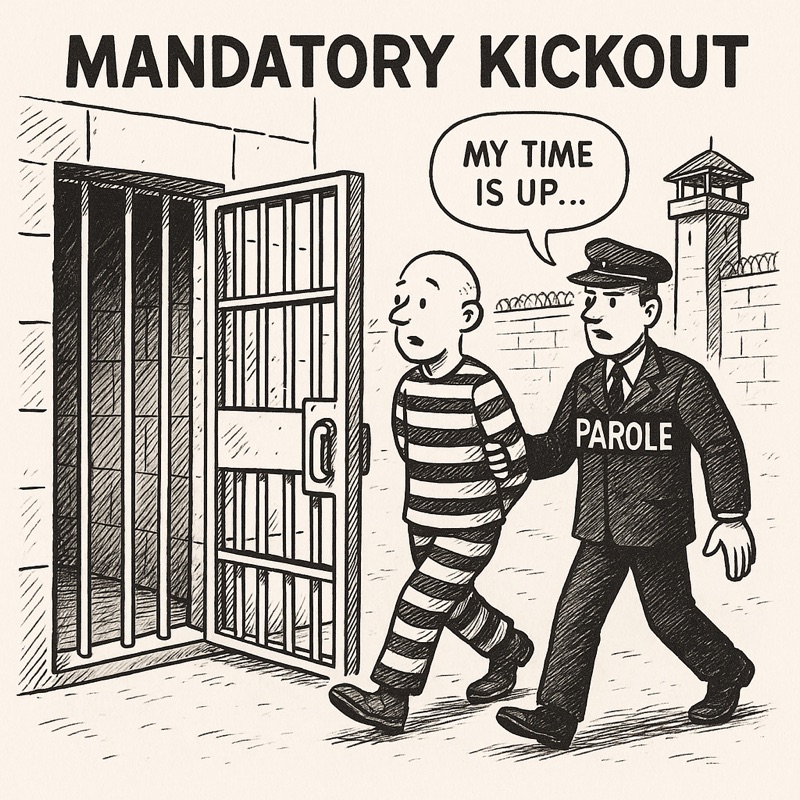
THE MANDATORY KICKOUT RULE: WHEN YOUR TIME IS UP, YOU GO HOME
By Devon T. White | Dropping Jewels That You Can Use | ThaWilsonBlock Magazine
Since the enactment of California’s Determinate Sentencing Law (DSL) in 1976, a fundamental shift took place in how punishment, custody, and parole are supposed to operate in this state. The Legislature made it crystal clear: once a person completes their determinate term, they must be released to parole supervision — not kept in a prison cell.
Under California Penal Code §§ 3000(a)(1) and 3000(b)(1), parole is not optional. These statutes establish what courts call the mandatory “kickout” rule — a legal command that the California Department of Corrections and Rehabilitation (CDCR) must release a person once their term is fully served, less any lawful credits. No warden, no Board, and no bureaucratic excuse can override that legislative mandate.
The California Supreme Court and Court of Appeal have been unambiguous on this point. In In re Bush (2008) 161 Cal.App.4th 133, the Court stated that the Board of Parole Hearings (BPH) “has no authority to grant or withhold parole to a prisoner who has served a determinate term.” The reason is simple: under the Determinate Sentencing Law, parole is automatic upon completion of the fixed term. It is not a privilege — it is a statutory right that marks the transition from physical custody to constructive supervision.
Yet despite this clarity, CDCR and BPH have, for decades, blurred the line between these two distinct jurisdictions — keeping people in unlawful physical custody long after the expiration of their determinate sentences. That is not rehabilitation. That is false imprisonment under color of law.
The Legislature drew the line:
- CDCR’s authority ends when the determinate term ends.
- BPH’s authority begins only when parole supervision begins.
When CDCR or BPH ignores that line, they violate not only the Determinate Sentencing Law, but also the California Constitution’s separation of powers and every individual’s fundamental right to liberty.
“When the term ends, the custody ends.”
Anything beyond that point is not lawful punishment — it is illegal detention.
The so-called correctional system cannot claim justice while holding human beings under expired terms. Every day spent beyond the lawful release date is a day stolen from a person’s life, their family, and their freedom — and it’s a day the State cannot legally justify.
Until this truth is recognized, California’s prison system will continue to operate in direct defiance of the very sentencing laws that created it.


Comments
Post a Comment